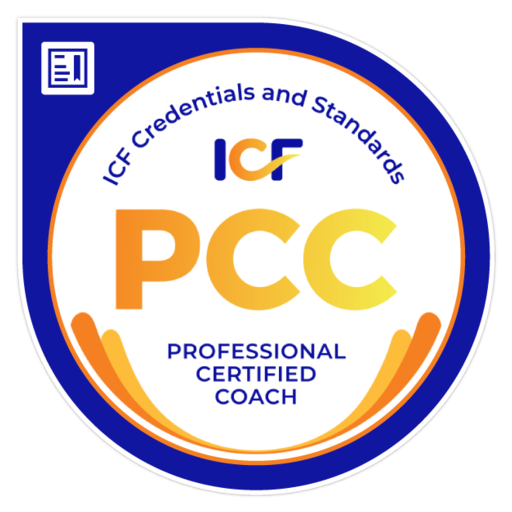I have been coaching executives and professionals for a long time. Now that I am a few decades in, I can objectively say that most executives struggle with self-confidence. Many female clients tell me that they struggle with “imposter syndrome,” while male clients talk about confusion, lack of clarity, and ineffectiveness.
Are my male and female clients talking about the same thing? Are feelings of confusion and lack of clarity the same as feeling like a fraud?
Imposter syndrome is a term that was coined in the 1970s by clinical psychologists Pauline Clance and Suzanne Imes to describe feelings of self-doubt by successful individuals about skills, talents, or accomplishments, despite evidence to the contrary. These largely successful people, originally thought to affect highly successful women, have a persistent fear of being exposed as a fraud.
Much has been written on the subject in professional journals, with at least five different identifiable personalities that struggle with imposter syndrome.
Do you identify with any of the following?
The Superman/Superwoman
Just as the name implies, these individuals push themselves hard. They like to be both hero and savior just to avoid low self esteem. That’s why they constantly go the extra mile and make sure the mission is accomplished. But if it fails, they will be stressed out by the realization that they actually are not the superhero they thought they were.
The Loner
These are people who do everything themselves. The Loner never asks for help because doing so would be a sign of weakness. The Loner is also afraid of being exposed.
The Expert
Experts are always hungry for information. They need to know everything. If a task or project is outside their scope of knowledge, the Expert will beg off participating to avoid looking stupid. Most won’t ask questions when they don’t understand something. The Expert’s ego is frail and easily shaken.
The Perfectionist
The name says it all. For this person, everything needs to be perfect. There are no exceptions. One tiny little mistake will make the Perfectionist feel like a failure.
The Genius
These, as the name would imply, are very smart people and things do come easily to them. However, when this suddenly changes, the Genius feels ashamed and embarrassed. They assume that something must be wrong with them because their natural ease and speed has been diminished.
When I read these descriptions, it seems we are talking about 99% of the population. I don’t know anyone who doesn’t feel insecure or confused at times, lacks confidence or shows one of the behaviors mentioned above. I find this especially true for my high-powered clients who are constantly stepping outside of their comfort zone – whether they are taking on global assignments, growing their business, or managing a team.
What’s the best way to deal with these feelings? Here are three tips that can help:
Understand that those feelings are normal
My first tip is the most important one. It is normal to feel insecure. It is normal for you to question your abilities. Many of us grew up hearing negative reinforcement: “You’re not smart enough,” or “Work harder” or “It’s not fast enough.” These statements still bear some weight on our self-esteem. If you can still for a moment and be with your emotions, you will make the connection. What matters here is the frequency. If you are constantly experiencing this, I suggest that you consider working on your conscious and not so conscious beliefs about your capabilities. Perhaps your emotional – mental makeup is one of not believing in yourself or doubting yourself and being able to celebrate yourself.
Love yourself and be kind
This is indeed simple, but at the same time, hard to do. After you realize that those feelings are normal, the best thing to do is love yourself and be kind to yourself. It’s the perfect antidote. At first, it seems impossible but when you start to take control of your thoughts and direct them there, you will get better. It is like exercising a muscle while practicing a new skill at the same time. It takes time, determination, and commitment, in the same way, a baby learns how to walk and talk. It may take a while to master, but the rewards are incredible. For those who need a little extra incentive, know that it is much easier to change when we are in a state of love and acceptance.
If you are impatient, consider working with someone who deals with unconscious beliefs around loving yourself. The process will go faster if you neutralize negative beliefs and replace them with positive ones. I use muscle testing and Neuro Emotional Coaching® for this and it has proven to be very effective.
Stay real and track your success
One way to stay grounded in reality is to track your success. While I believe this to be only partially successful, it will work for a few types of imposter syndrome and is a good supplement while you work with the first two tips. The tool is simple: just track all your successes all the time, no matter how small or simple. Tracking is a great tool that helps you maintain a balanced reality.
Real and lasting change takes time and commitment. You have probably felt feelings of insecurity and doubt for a long period of time. It therefore only makes sense that it is going to take a while to rewire yourself. Research has shown that the rewiring or repatterning process is most effective if we do it at a very deep level. It has been my experience that the deeper you go, the faster and easier it is to adopt new patterns. Love, kindness, acceptance will help you manage and get through the tough spots.
The result of your hard work? A self-confident, happier, healthier, more relaxed version of you. That person will have more fun, take on more exciting and challenging assignments, and be more productive. Most importantly, that imposter will be long gone.








